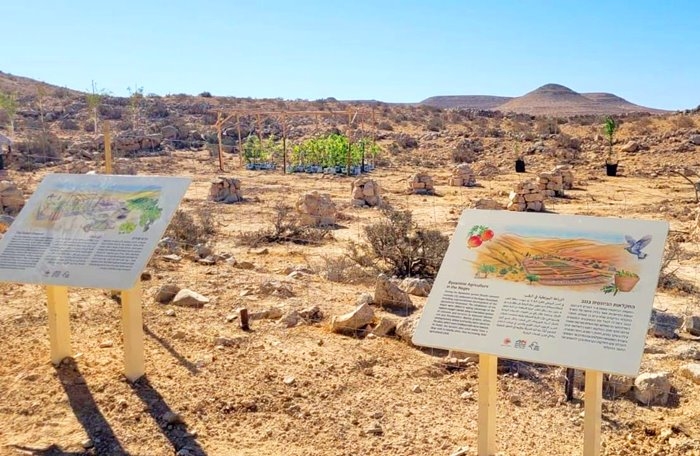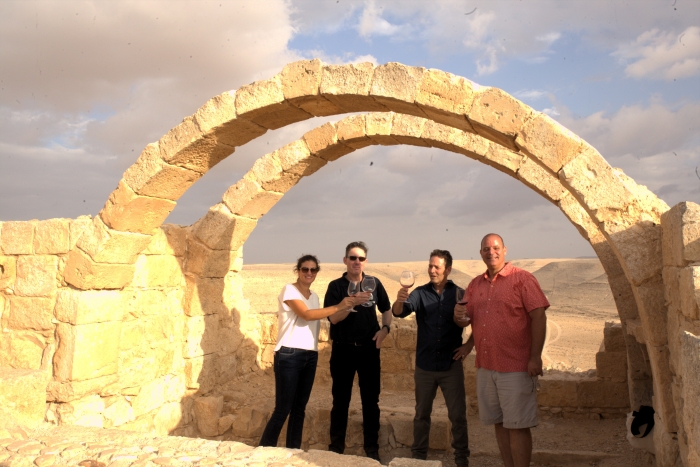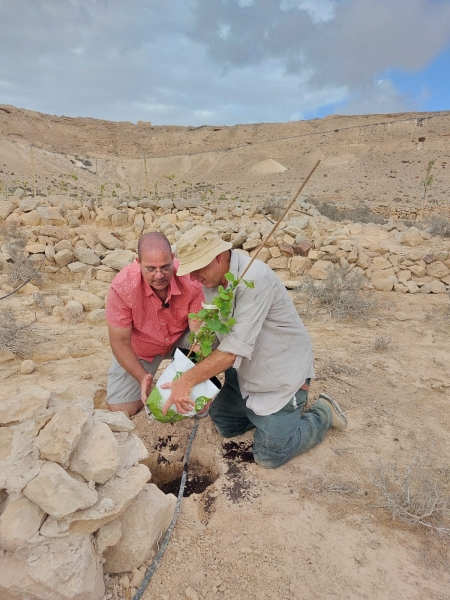Ancient grape varieties recovered in Israel's Negev desert for the first time in the world
Reviving 1,500-year-old grape varieties in the negev
2023-09-21

In a landmark event on September 13, 2023, at the Avdat National Park, two ancient grape varieties were replanted in the very vineyards where they originally thrived some 1,500 years ago. This significant moment, overseen by Israel's Minister of Environmental Protection, Idit Silman, marked the marriage of archaeological discovery with cutting-edge genetic research to rejuvenate a rich vinicultural tradition.
Avdat National Park, a UNESCO World Heritage site and a pivotal location on the Negev Wine Route, holds an illustrious past. Integral to the Nabatean Incense Route, Avdat city also emerged as a major hub for wine production and export during ancient times. From the 4th to the 7th centuries AD, as Christianity became the official religion of the Byzantine Empire, the wines of the Holy Land and Negev were held in high regard across the empire, with their fame reaching as far as present-day England.

Reviving Ancient Grapes: The Quest and Its Success
This ambitious endeavor to resurrect ancient vine varieties was spearheaded by Prof. Guy Bar-Oz from the University of Haifa in collaboration with Dr. Meriv Meiri from Tel Aviv University and researchers from the Israel Antiquities Authority. Their pursuit led them to seeds unearthed in archaeological digs in Avdat. Through innovative DNA research, two grape varieties, Sariki and Beer—endemic to the Negev Desert—were identified. These varieties were once integral to the production of a wine renowned throughout the Mediterranean and beyond during the first millennium AD.
A Collaborative Mission: Rediscovering Negev's Wine Heritage
This remarkable project was the brainchild of a collective initiative involving the Natural Parks Authority, the University of Haifa, the Antiquities Authority, the Merage Israel Foundation, and the Ramat HaNegev Regional Council. The newly-planted vineyard closely follows the traditional vineyard structure prevalent during the Mishnaic and Talmudic periods (1st-7th centuries AD). Modeled on historical agricultural systems discovered through years of pioneering research in the Negev, this vineyard echoes principles of desert sustainability.
The revival of these vineyards dovetails with the broader growth in the Negev wine region. The establishment of the Negev Wine Consortium, steered by the Merage Israel Foundation, with over 40 wineries spanning from North Negev to Eilat, exemplifies this progression. The consortium serves as a hub for collaboration and aims to promote the Negev as a unique wine and tourist destination.
Moreover, plans are afoot to incorporate the traditional varieties, Sariki and Beer, alongside well-known varieties cultivated by consortium members. These include Chardonnay, Chenin Blanc, Sauvignon Blanc, Malbec, Merlot, Cabernet Sauvignon, and Petit Verdot.
Voices from the Field
Idit Silman, the Minister of Environmental Protection, emphasized the project's significance in the face of climate change. She remarked on the inspiring history of the Negev producing vast amounts of wine in a desert and exporting it to Europe 1,500 years ago. Today, she noted, with advanced technology, Israel sets a global example in innovative, sustainable solutions.
Eran Doron, Mayor of the Ramat HaNegev Regional Council, expressed his enthusiasm about restoring Avdat's terraces with traditional vine varieties. Highlighting the region's cutting-edge research in agriculture, he drew attention to the ability to produce quality wine in arid conditions.
Prof. Guy Bar-Oz articulated the broader significance of the project, underscoring its representation of sustainable agricultural development. He believed that understanding these historical farming traditions, especially in desert conditions, holds universal value in the context of current environmental challenges.
Founded in 2007, Vinetur® is a registered trademark of VGSC S.L. with a long history in the wine industry.
VGSC, S.L. with VAT number B70255591 is a spanish company legally registered in the Commercial Register of the city of Santiago de Compostela, with registration number: Bulletin 181, Reference 356049 in Volume 13, Page 107, Section 6, Sheet 45028, Entry 2.
Email: [email protected]
Headquarters and offices located in Vilagarcia de Arousa, Spain.
